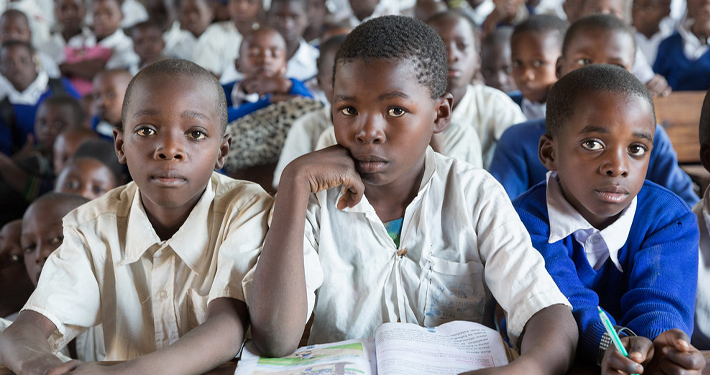The federal government’s proposal to adopt a 12-year education system has sparked mixed reactions from stakeholders in the country.
While some believe the change will enhance the quality of education and better prepare students for the future, others have raised concerns about its impact on the existing educational structure.
At the 2025 Extraordinary National Council of Education meeting in Abuja recently, the minister of education, Dr. Tunji Alausa, proposed a shift to a 12-year basic education model in Nigeria.
A major feature of the proposed system is the removal of the examination barrier between Junior Secondary School (JSS) and Senior Secondary School (SSS), allowing students to progress seamlessly without the need for external assessments at that stage.
However, education experts, parents, and other stakeholders are concerned about the implications of this shift and whether it will address the challenges facing Nigeria’s educational system.
In her reaction, Prof. Maryam Abdu of the Kaduna State University, said Nigeria had the 12-year system for a long time and was abolished due to factors in conformity with “our current situation.”
According to her, reverting to the 12-year system would disrupt some structures put in place by the government and “take us back to the olden days.”
“For instance, the idea of a student finishing JSS 3 and deciding on what action to embark upon, whether to continue his or her education or embarking on technical/entrepreneurship activities, will be ignored. Personally, it will address some challenges and not tackle others.
“For instance, a student will continue and conclude his or her secondary education uninterrupted. The platform will ensure that students complete their education uninterrupted. There will be no flexibility as they will be in school uninterrupted. The issue of career path will still be in force because six years of secondary education will give them enough time to choose their career path.
“The shortcomings might be with regards to continuity. Students have to write exams before proceeding to the next level. With this new policy, the manner of registration will be continuous,” she added.
An academic research consultant at the University of Abuja, Humphrey Ukeaja, said the Ministry of Education’s move towards a 12-year system is in the right direction, aligning with global trends.
However, he pointed out that for the system to succeed, key challenges such as curriculum overload, inadequate infrastructure, and the need for teacher capacity building must be addressed.
He emphasised the importance of prioritising student passion, with counselling to guide career paths. “My overall perspective on the proposed new 12-year education system is that it will still boil down to implementation.
“The new 12-year education system, if it’s channelled into science, technology, entrepreneurship, and mathematics, will go a long way in improving the new generation of students in Nigeria.
“This will be a work in progress, similar to what we see in China and other Asian countries, where technology is now a major driving force, not just educational topics,” he said.
Ukeaja continued, “Most of the challenges we face with the current system stem from curriculum overload. For instance, students are taking multiple subjects, but the main focus should be on one skill, like cyber technology.
“After three years of studying that, there’s no way a student won’t have perfected that skill. But this must come from passion, which is why counselling plays a key role,” he said.
Also, a policy analyst and curriculum specialist, Dr. Adetola Salau, welcomed the policy.
She said, “We need to reduce the dropout rate, which is very key, and also improve literacy. Our students must be able to comprehend what’s happening around the world.
“Many times, this conceptual understanding happens more in senior secondary school, so having this system is a positive thing. It will help reduce dropout rates, improve literacy, and ensure that students are ready for the workforce when they finish school.
“Not everybody will end up at the university, so we need to equip them with skills in the last three years of secondary school. This will help them become economically valuable members of society,” she added.
However, Olatunji Sobodu, an academic and leadership development expert, expressed concerns over changing the structure without adequately addressing the issue of character development.
He said, “If you talk about the needs of Nigeria today, we have a character challenge as a nation. Skills are important, but character cannot be developed in six months. What promise do these changes make in terms of the character of the individuals we produce from this system?”
Comrade Edoh Paul Gabriel, the assistant secretary-general of NANS, emphasised the importance of adopting a 12-year education system to revive and improve the current educational framework.
He said, “My overall perspective on the proposed 12-year education system is all about reviving the educational system for positive growth and better knowledge transfer to the younger generation.
“It is imperative to note that every nation has its own peculiarities, but how we bring them up is crucial. This new system will equip the younger generation with a clearer focus and better timing towards achieving their educational goals,” he said.
On her part, the vice chairman of NANS FCT, Comrade Evelyn Elisha, said the proposed system is a necessary reform to address several challenges within the education sector.
She said, “It’s not that the years are being increased, but the format will change. Instead of six years in primary school, three years in junior secondary, and three years in senior secondary, all 12 years will be done consecutively at a particular school.”
A parent, Abdul Usman, urged the government to create a conducive environment for children to thrive rather than simply changing policies. He said, “I can’t say this is an improvement on the education sector.
“What we need now is for the government to provide a habitable environment for children to learn, along with essential learning materials such as libraries and skills training. Teachers should also be properly trained and paid well,” he said.



